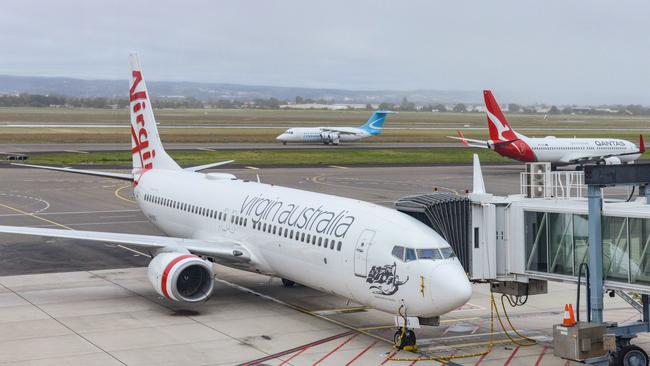Aviation white paper tackles consumer protection and access to services
Consumer protection in the aviation industry is one of several areas to be examined by a $7m white paper being prepared by the Albanese government.

Business
Don't miss out on the headlines from Business. Followed categories will be added to My News.
An aviation white paper intended to shape the industry’s future in Australia will examine consumer protections as well as the role of airlines and airports in supporting regional economies.
Last year’s federal budget allocated $7m for the white paper, which was an election promise for the Albanese government.
Nine months on, Minister for Infrastructure, Transport and Regional Development and Local Government Catherine King was to release the terms of reference for the document on Tuesday.
Ms King said the paper would help deliver long-term policy directions for the aviation industry, which had suffered from a “lack of planning” under the previous government.
“A safe, efficient, sustainable and competitive aviation sector is critical to the economy and the standard of living of all Australians,” Ms King said.
“Aviation connects Australians with the world and communities to each other. It allows us to visit family and friends interstate and it provides a vital link to regions and remote Australia.”
The areas to be covered by the white paper included aviation’s role in economic development, trade and the visitor economy; the regeneration of the general aviation sector; and achieving the industry’s target of net zero carbon emissions.
Submissions were also being sought on appropriate consumer protections and access to services, and the changing nature of aircraft noise and how airports planned and consulted on that.
The deadline for submissions from individuals and organisations is March 10. Policy proposals based on the white paper’s findings will be released in a green paper later in the year.
Opposition transport spokeswoman Bridget McKenzie supported the release of the terms of reference to “enable the aviation white paper to commence”.
But Senator McKenzie questioned the lack of a discussion paper to help members of the community to make submissions.
“By failing to provide a discussion paper and only allowing one month for submissions, the Government seems to be discouraging submissions from members of the public,” said Senator McKenzie.
“The time for public submissions should not be cut short just because it took the minister months to decide on terms of reference.”
She called on the government to extend the time period for public submissions “to allow all interested stakeholders the opportunity to make a meaningful contribution to this important sector”.
A previous white paper released by the Rudd government in 2009 recommended the 49 per cent foreign ownership restriction on Qantas remain in place and laid the groundwork for increased security measures at airports.
About 300 submissions were received for the 216-page document, which was criticised by the general aviation community for ignoring their input and delivering little substance.
Last year, a Senate Committee led by Nationals senator Susan McDonald completed an inquiry into the future of the aviation sector in the context of the Covid pandemic.
The final report made nine recommendations, including preparation of a white paper on aviation workforce issues, such as the impacts of “job insecurity, wage decline and the erosion of safe work conditions”.
Future industry workforce skills and training requirements were included in the terms of reference for Ms King’s white paper.
Originally published as Aviation white paper tackles consumer protection and access to services



